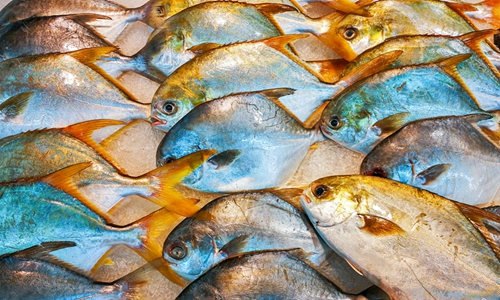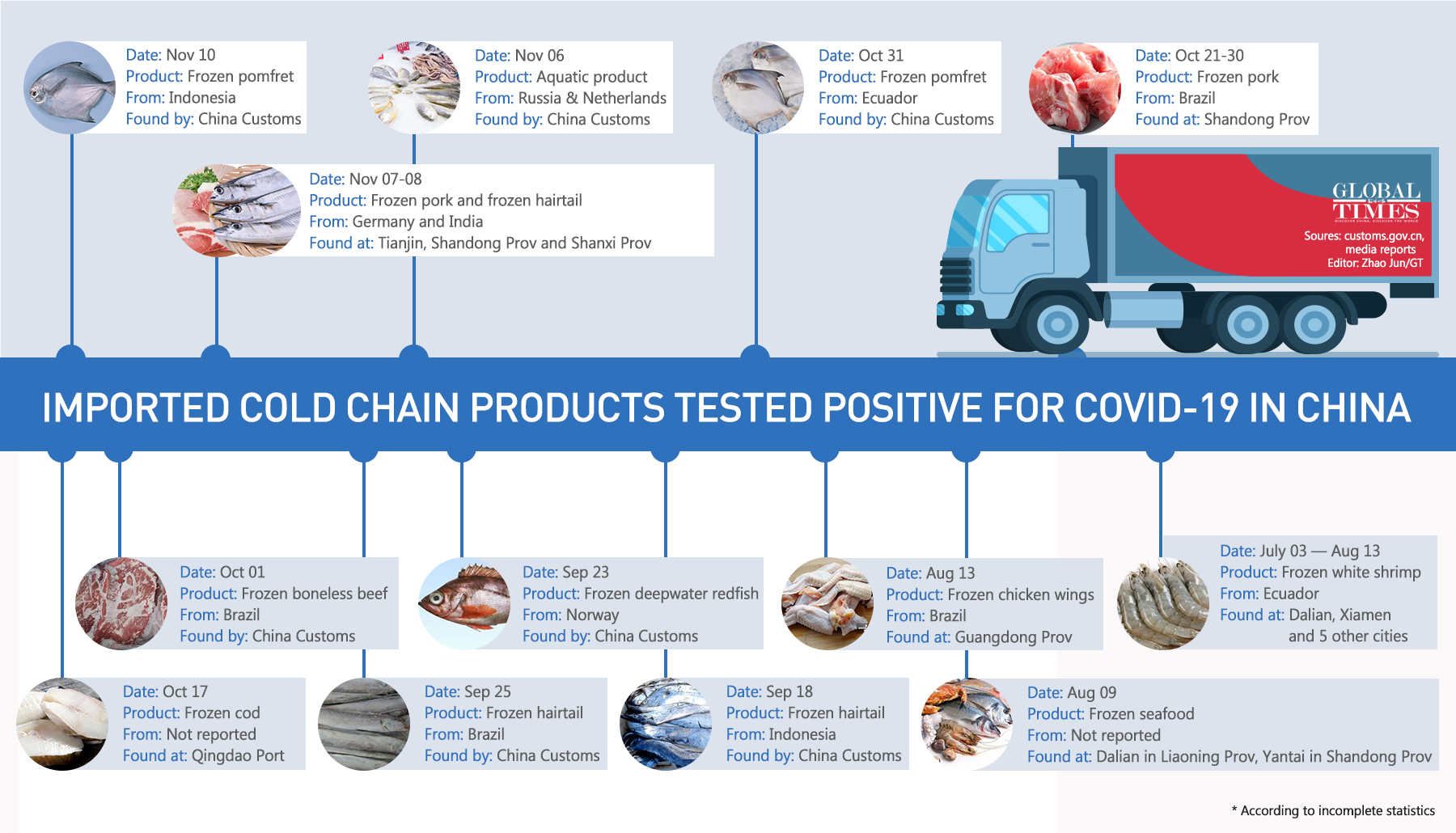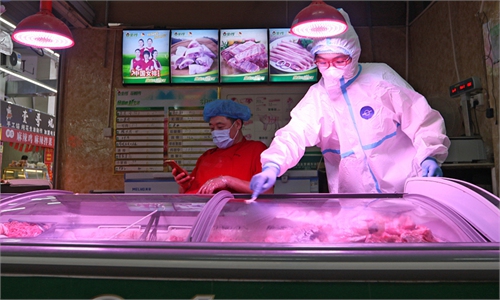SOURCE / MARKETS
More than 25 imported COVID-19 cases detected via cold chain from eight countries since July

File Photo: VCG
Imported COVID-19 cases via cold-chain food are ascending, which shows that, despite the containment of the pandemic with China, the outbreaks abroad continue to pose a severe challenge to the country.
It has been estimated that there have been more than 25 novel coronavirus cases detected in imported food cold chains since the first case was found in July, mostly from major frozen meat exporting countries including Ecuador, Russia, Indonesia, Brazil and Norway.
The earliest discovery of novel coronavirus in cold chain food can be traced back to July 3, when Dalian Customs detected the coronavirus on the inner wall of a container loaded with frozen white shrimp produced by an Ecuadorian company.
On the same day, a sample of frozen white shrimp from another Ecuadorian company also tested positive after Xiamen Customs carried out a nucleic acid test on the package.
The two cases caused a nationwide alert regarding the safety of the food cold chain from abroad, casting a shadow over the consumption of frozen imported meats for months.

Infographic: GT
The most recent case caused the week-long suspension of imports from an Indonesian aquatic product manufacturer after a sample of the company's frozen pomfret fish tested positive, marking the second time the coronavirus has been detected in a sample of pomfret fish from an Indonesian company.
In addition to aquatic products, coronavirus has also been found on other meat in the imported cold chain including frozen pork from Germany and frozen chicken wings from Brazil.
In order to effectively prevent imported cases from abroad, central and local governments launched preventative measures that specifically regulate the cold chain industry.
Under the joint prevention and control mechanism of the State Council, a working plan for the comprehensive disinfection of imported cold chain foods was issued on Monday. It requested that the cold food chain be part of a closed-loop, allowing the whole process to be traced in a bid to minimize the risk of the imported novel coronavirus.
If a test result comes back positive in the imported food chain, the goods will be returned or destroyed.
In September, China Customs issued a statement noting that it would stop accepting import declarations from the relevant manufacturer for one week if the cold chain food exported to China by the same overseas manufacturer (or its packaging) tested positive through a nucleic acid test twice.

